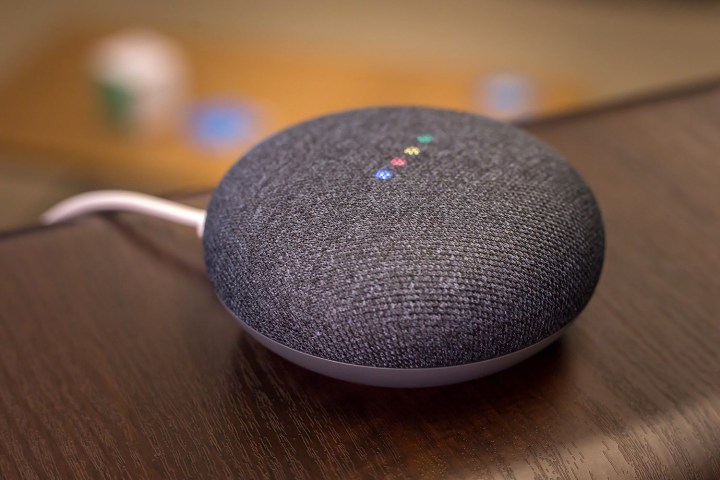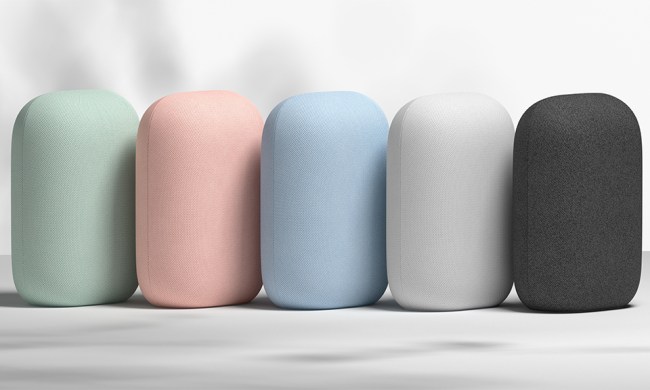
One of the world’s biggest multinational investment banks is urging two of the biggest technology giants in the smart home market to go to war — and its investors are advocating for a first strike. In an unusually dramatic note this week, Morgan Stanley argued that Google’s parent company, Alphabet, should simply give away its signature Google Home Mini devices for free in order to disrupt Amazon’s domination of the smart speaker market.
“We argue Alphabet needs more devices/smart speakers in people’s homes, analyst Brian Nowak said in a report on Thursday, June 28. “The growth of voice shopping combined with Amazon’s expected install base advantage could threaten long-term growth in Alphabet’s high-monetizing retail search category. Like the mobile transition when Alphabet gave Android to OEMs and began paying Apple to power Safari search, we believe Alphabet should give away a Google Home Mini to every U.S. (arguably global) household.”
The company’s projections are pretty dramatic. Nowak estimated that Amazon will fully control more than 60 percent of the U.S. smart speaker market by the close of 2018, leaving Google in a distant second place at 33 percent. His analysis also projects that more than 70 percent of U.S. households will own a smart speaker by 2022.
Here’s how you know how big Morgan Stanley really is: Nowak says this preemptive strike will “only” cost Alphabet a cool $3.3 billion — deemed “a small price to pay” for the opportunity. “Those households could be less likely to adopt using a Google Home … even if it were free,” he said.
Now, you might think, “Cool, a free smart speaker!” Not so fast. The very point of smart speakers is to direct users’ retail and data searches to the manufacturer’s own services. Morgan Stanley projects that Alphabet will bring in $44 billion in retail-search revenue through 2022, or nearly $16 billion in operating profit. When we apply these figures to Morgan Stanley’s scheme, it means that Alphabet could make more than five times their original $3.3 billion investment by capturing more of the market.
“We see voice shopping likely leading to faster ecommerce adoption … so in our view, the only question is whether/how much Alphabet will participate in voice commerce monetization,” he said. “More aggressive investment in a Google Home Mini giveaway could also drive the sum of parts [valuation] narrative.”
In other words, your smart speaker is not only a conduit to data and ecommerce resources, they are also the leash that keeps customers tied to the device maker’s range of services. Fortune even suggested that Google could bundle a Home Mini to its new YouTube Premium subscription service, just one more offering from a Google subsidiary that Morgan Stanley values as a $160 billion asset.


